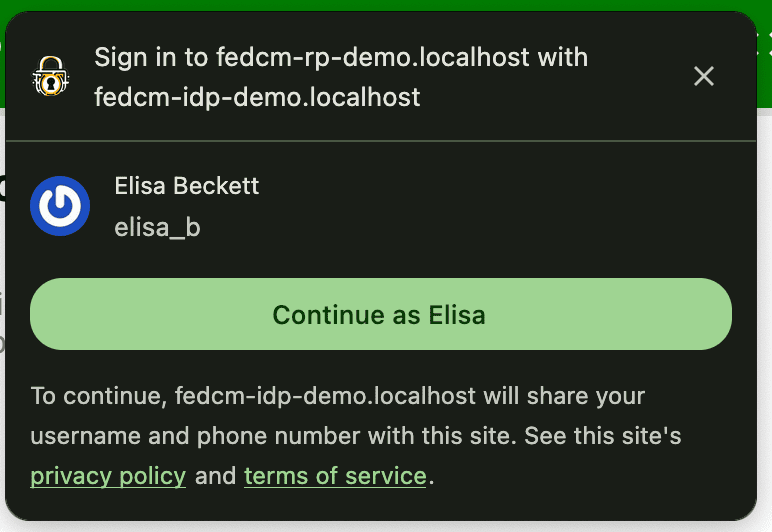From Chrome 141, we're introducing changes to the Fields API in the Federated Credential Management API (FedCM). This change aims to allow developers to support alternative user identifications, and provide users with more transparency which data is shared between the Relying Party (RP) and Identity Provider (IdP).
Additionally, we're deploying an experimental ML model that aims to personalize the FedCM user experience and only show the dialog to users who are more likely to login with FedCM.
Updates in Fields API
Previously, FedCM required an email field for each account. While this works for many IdPs,
developer feedback showed
that it was too restrictive. Some IdPs allow users to sign up with a phone number or a username, and
don't always have an email address associated with the account.
To address this, we've made the email and name fields optional and added two new optional
fields:
username: A string representing the user's username.tel: A string representing the user's phone number.
From Chrome 141, at least one of the "name", "username", "email", or "tel" fields must be provided.

This update is backwards-compatible, and the existing implementations will work as expected. For
more details on how an IdP can use the fields property in their implementation, see the
documentation.
Check out the demo to see how it works.
ML powered user experience
To improve the user experience, we're deploying an experimental model that aims to reduce unwanted prompts. This model predicts when a user is likely to sign up or sign in and will only display the FedCM UI at those moments. This update will be automatically enabled for users in Chrome 141, with no developer action is required.
To enable or disable the model for local testing, you can toggle the
chrome://flags/#fedcm-segmentation-platform flag.
Share your feedback
These changes are part of our ongoing effort to make FedCM a more flexible and robust API for federated identity on the web. To help us improve the API, share your feedback on these or any other features by filing an issue.
